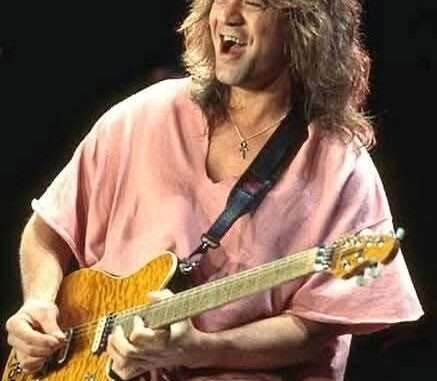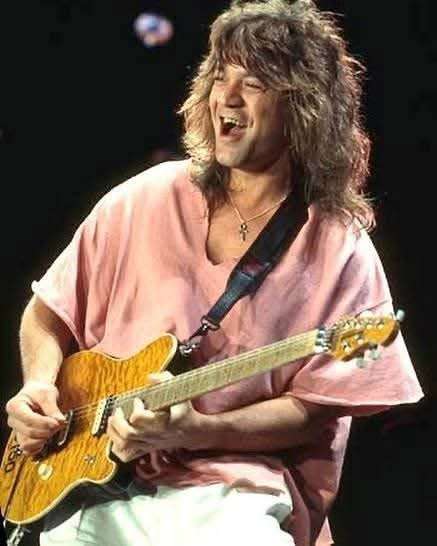
Few guitarists command as much respect as **Eddie Van Halen** and **Eric Clapton** — two icons who helped shape the sound and evolution of modern rock guitar. But when Van Halen sat down for an interview with *Far Out Magazine* in 2015, he sparked one of the most provocative discussions in the world of guitar culture. In a moment of unfiltered honesty, Van Halen commented that **Eric Clapton was a better guitarist when he was a heroin addict**, adding that *“after that, he was just trying to sound like B.B. King — but B.B. King has him beat because Clapton isn’t B.B. King.”*
The quote immediately grabbed attention, not only because of its bluntness but also because of who it came from. Eddie Van Halen was never known for holding back his opinions. His words were not meant to disrespect Clapton, but rather to express a deeper truth about the raw emotion and imperfection that often drive artistic brilliance.
To understand the weight of that comment, it helps to look at the timeline. In the mid-to-late 1960s, **Eric Clapton** was considered a revolutionary force. His work with **John Mayall & the Bluesbreakers** and **Cream** transformed the electric guitar into a weapon of expression — loud, emotional, and full of attitude. His solos on tracks like *“Crossroads”* and *“Sunshine of Your Love”* inspired an entire generation of guitarists, including a young Eddie Van Halen himself.
But by the early 1970s, Clapton’s career took a dark turn as he struggled with heroin addiction. Ironically, during this chaotic period, his playing was filled with an almost tortured beauty — a mixture of pain, soul, and vulnerability. When he eventually recovered and cleaned up, his sound mellowed. The fire that once burned with youthful recklessness gave way to a smoother, more restrained blues style.
For Eddie Van Halen, that shift marked a loss of something essential. “After that, he was just trying to sound like B.B. King,” Eddie said. “But B.B. King has him beat because Clapton isn’t B.B. King.” It was a bold statement, but one rooted in Van Halen’s deep respect for authenticity. Eddie wasn’t glorifying addiction — he was pointing out that the turmoil and imperfections of an artist’s life often seep into their work in ways that can’t be replicated when things become too controlled or polished.
Van Halen’s own life and music reflected that philosophy. His guitar playing was full of chaos, emotion, and experimentation — tapping, harmonics, and dive bombs that broke the rules and rewrote the language of rock. Like Clapton in his early years, Eddie’s genius came from passion rather than perfection. Both men, in their own ways, played as if they were constantly chasing something — not fame, but truth through sound.
The comment also highlighted an age-old debate in music: does suffering make art more powerful? Clapton’s early recordings had a sense of urgency that mirrored the turbulence in his personal life. As he matured and gained stability, his tone became smoother, more disciplined — technically brilliant, but less dangerous. Van Halen’s remark wasn’t about the drugs; it was about the loss of that danger, that unpredictability that defined great blues and rock guitar playing.
Despite the controversy, Eddie Van Halen’s admiration for Clapton was undeniable. He often cited Clapton as one of his earliest inspirations, famously saying that he spent countless hours learning Cream solos note for note. His 2015 comments, though harsh, came from the perspective of a fellow musician who understood how emotion — even pain — could drive creativity.
In hindsight, Van Halen’s statement serves as more than a critique. It’s a reflection on how artists evolve, and how the passage of time changes not only their music but their identity. Eric Clapton may no longer play with the same reckless abandon he once did, but his influence remains untouchable. And Eddie Van Halen, who passed away in 2020, left behind a legacy built on that same fearless pursuit of musical truth.
In the end, both men stood at the summit of their craft — Clapton with his soulful phrasing, Eddie with his explosive innovation. And perhaps that’s what Van Halen really meant: that the best art often comes from a place where comfort hasn’t yet dulled the edge.
Leave a Reply